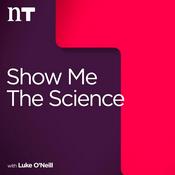17 episodes

Episode 17: Business Schools with Norah Campbell
15/9/2025 | 57 mins.
Hello and welcome back to Money Power Health.This week we are discussing business schools with Dr. Nora Campbell, Associate Professor of Marketing at Trinity Business School, Dublin, where she teaches in management theory, and science and technology studies. We delve into the historical role of business schools, the evolution of management theories, and the demands of current students. Norah shares her unique journey from studying French and German to marketing and eventually focusing on the commercial determinants of health. We also touch upon the shift from productivity and efficiency to sustainability and the potential future of education in business schools, how such institutions might reinvent themselves in response to ecological and health imperatives, and what the place is of critical scholarship in such spaces. We end with forward looking reflections, as Norah considers the importance of maintaining a balanced life and critically analyzing the structures within which we all work.If you would like to find out more about Norah's research, which spans nano-bio-info-cogno markets, climate change, and the food industry, here are some links to recent articles: The corporate political activity of the food industry in Ireland: an analysis and proposed solutionshttps://academic.oup.com/eurpub/article/34/Supplement_3/ckae144.1511/7843367Ultra-Processed Food: The Tragedy of the Biological Commonshttps://www.ijhpm.com/article_4359.html Here are some examples of her public writing:https://www.irishtimes.com/health/your-wellness/2023/01/30/it-delivers-a-taste-bomb-of-pure-pleasure-but-ultraprocessed-food-is-killing-us/https://www.irishexaminer.com/opinion/commentanalysis/arid-41626909.htmlAnd here is a link to her university profile:https://www.tcd.ie/business/people/faculty-professors/ncampbe/ The music in this podcast was by Daniel Maani. You can find out more about his music and poetry here: https://www.danielmaani.com

Episode 16: Prisons, health and justice with Chantal Edge and Nicola Dennis
23/7/2025 | 1h 2 mins.
Hello and welcome back to Money Power Health. Justice and health are deeply intertwined, as the same social and economic factors that can significantly impact individual and population health, can also influence a person's likelihood of interacting with the justice system. Prisons are places with some of the most profound inequalities in health outcomes, and if we care about the ways in which gaps in money, power and health overlap, the wellbeing of all those touched by the justice system needs to be part of the conversation. In order to discuss health and justice in the UK I am joined today by two inspiring public health practitioners with a central interest in this area. Dr Nicola Dennis is acting consultant in public health working in the West Midlands, with a particular interest in health inequalities. Dr Chantal Edge is the National Lead for Health and Justice at the UK Health Security Agency and a Public Health Consultant by background. Both have been working together on the Chief Medical Officers upcoming report on the health of people in prison and probation in England. In this podcast, they help me understand who the justice system affects in the context of health, in what ways, how these intersect with wider social inequalities and childhood experiences, the importance of improving health in custody as part of wider rehabilitation, the challenges faced by inmates who seek healthcare in terms of access and stigma, and what efforts are underway to consider and mitigate these challenges. If you are interested in reading more about these issues, I include some links below. Here is a short animation produced based on work by Dr Edge and others on the experiences of prisoners seeking healthcare in their own words: https://www.youtube.com/watch?v=_IDag_RFus8 Here is a paper by Dr Edge and colleagues (including past guest Prof Martin McKee) reviewing the evidence regarding prisoners co-infected with TB and HIV: https://pubmed.ncbi.nlm.nih.gov/27852420/In a global context, you can find out more about key facts and figures from Penal Reform Internationals Global Prison Trends (2025) here: https://cdn.penalreform.org/wp-content/uploads/2025/05/PRI_Global-prison-trends-2025.pdfMusic in this podcast was by Daniel Maani. You can find out more about his music and poetry here: https://www.danielmaani.com/

Episode 15: Addressing research/action gaps with pracademic Dr Gayle Amul
16/7/2025 | 43 mins.
Hello, and welcome back to Money, Power, Health. Today we’re talking about research and advocacy in tobacco and alcohol policy with someone seeking to hold the industries in question accountable—not just through research, but through advocacy and policy engagement.My guest is Dr. Gayle Amul, a researcher and advocate whose work focuses on alcohol and tobacco industry interference in public health policy. Gayle is currently a Senior Adviser for the Alcohol, Drugs and Development Programme at FORUT, a Norwegian NGO. She’s also deeply involved in alcohol policy research in the Philippines, working with the University of the Philippines National Institutes of Health through their Health Promotion Program.Gayle is one of the founding members of the Community of Practice on Alcohol and Substance Use in the Philippines and sits on the advisory board of a tobacco control researchfellowship focused on smoking cessation, led by the Ateneo School of Government. We also talk about Gayle’s journey from political science into global health, her reflections on navigating academia as a space for action, and what it means to be a pracademic—someone who bridges research and advocacy in meaningful ways. Whether you’re a student, researcher, policymaker, or advocate, her insight are helpful in thinking how we can use academic tools not just to describe the world, but to help change it.I hope you enjoy the conversation.You can find examples of her research below: Comparing tobacco and alcohol policies in the Philippines and Singapore: https://pmc.ncbi.nlm.nih.gov/articles/PMC9606809/Analysis of flavor descriptors of tobacco products in the Philippines and implications for LMICs: https://link.springer.com/article/10.1186/s12992-024-01072-6Cigarette packaging as a commercial determinant of smokking: Perceptions of graphic health warnings among Filipinos: https://www.sciencedirect.com/science/article/abs/pii/S0277953624010700Corporate social responsibility as a commercial determinant of health: Case study of the alcohol industry in the Philippines: https://www.sciencedirect.com/science/article/abs/pii/S027795362500499X

Episode 14: Forever chemicals, lobbying and transparency with Vicky Cann from Corporate Europe Observatory
10/6/2025 | 50 mins.
Hello everyone and welcome back to Money Power Health.This week, we are discussing so called “forever chemicals” or PFAS, a group of more than 10,000 man-made chemicals used in a wide range of industrial applications and consumer products. Of core interest to public health, they are resistant to degradation, meaning they persist in the environment, contaminating water and soil, and ending up in our food chain and bodies, accumulating in people, animals and plants. The rate and spread at which this is happening, combined with the health effects of such chemicals, some of which can affect reproduction and foetal development or cause cancer, has led to a range of new regulatory proposals to eliminate or reduce their use around the world. However, such developments face strong and coordinated lobbying efforts by the manufacturers of these chemicals. To discuss this issue, I am joined by Vicky Cann from Corporate Europe Observatory and co-author of their Chemical Reaction report which documented extensive lobbying in collaboration with a global group of journalists and media outlets. We’ll discuss how industry lobbying is shaping the fate of PFAS regulation in Europe, what this means for public health and the environment, and why the Commission’s receptiveness to corporate influence raises urgent questions about how we protect democratic decision-making from commercial capture. I hope you enjoy the conversation. You can find a recent article by Vicky Cann alongside Hélène Duguy from ClientEArth on forever chemicals in the EU here: https://corporateeurope.org/en/2025/05/forever-chemicals-are-everywhere-so-why-isnt-eu-banning-them-all The full report she discusses in the podcast is here: https://corporateeurope.org/en/chemical-reaction and news coverage of it is here: https://www.theguardian.com/environment/2025/jan/14/industry-using-tobacco-playbook-to-fend-off-forever-chemicals-regulation Information on the forever lobbying project she references is here: https://foreverpollution.eu/lobbying/ Links to the core FOI documents (now deposited in the Industry Documents Library: https://www.industrydocuments.ucsf.edu/chemical/collections/forever-pollution-project/ You can sign up to the Corporate Europe Observatory newsletter here: https://corporateeurope.org/en/newsletter

Episode 13: Industry-funded school education programmes with May van Schalkwyk
11/3/2025 | 1h 16 mins.
Hi everyone and welcome back to Money Power Health. We often tend to think of our health as the product of our own energies, something we alone are accountable for. But in reality, our health is to a large degree shaped by the conditions we find ourselves in, the quality of our air, the wealth of our parents, the food we have access to, our opportunities for work, our time for exercise. Schools and education are a key part of this. Schools shape how we see the world and interact with each other at a critical stage in development. Most people might assume that schools are a place in which commercial influence is largely absent. That however is far from the case. Children are a key market, and brand loyalties formed in childhood can persist into adulthood, and standards of behaviour, of consumption, taste, and definitions of coolness, risk, fun are all being formed during this time. In part due to this, there is now a long history of the manufacturers of unhealthy products funding the development of lesson plans, initiatives and activities in primary and high schools that involve issues like fossil fuels, firearms, alcohol, gambling or smoking. This has significant strategic value, and in order to understand more about why this happens, and what it means for children and young people, I am very pleased to be joined by someone who has led on several studies examining the nature and purpose of such funded materials in schools. May van Schalkwyk is a research fellow in commercial determinant of health in the Global Health Policy Unit and Centre for Pesticide Suicide Prevention at the University of Edinburgh. She also has an honorary public health consultant role with Public Health Scotland and is an honorary research fellow at the London School of Hygiene and Tropical Medicine where she completed her PhD in 2023 and is a member of the commercial determinants research group. May originally trained as a clinical doctor and then specialised in public health medicine. Her research aims to explain how commercial actors influence ideas, knowledge, science and policymaking. She publishes research on the tobacco, alcohol, gambling, fossil fuels, opioid, pesticide and firearm industries, including on the influence of youth education and safety programmes as a form of corporate political activity. Full disclosure: May and I are good friends and go back some time, having met at the London School of Hygiene and Tropical Medicine, and worked together for over seven years researching the commercial determinants of health, including some of the articles we will be discussing. You can find out more about the topics we have discussed, including some of May's recent research articles, in the links below: Alcohol industry funded school programmes: https://journals.plos.org/plosone/article?id=10.1371/journal.pone.0259560https://www.thelancet.com/journals/lanpub/article/PIIS2468-2667(22)00341-3/fulltextGambling industry funded school programmes: https://academic.oup.com/heapro/article/39/1/daad196/7565070https://www.sciencedirect.com/science/article/pii/S235282732200101XLink to public-facing videos May has made about research on the commercial determinants of health: https://www.youtube.com/channel/UCfnKnt8BHlSgTIdK7jfGwfg
More Science podcasts
Trending Science podcasts
About Money Power Health with Nason Maani
Listen to Money Power Health with Nason Maani, Show Me the Science with Luke O'Neill and many other podcasts from around the world with the radio.net app

Get the free radio.net app
- Stations and podcasts to bookmark
- Stream via Wi-Fi or Bluetooth
- Supports Carplay & Android Auto
- Many other app features
Get the free radio.net app
- Stations and podcasts to bookmark
- Stream via Wi-Fi or Bluetooth
- Supports Carplay & Android Auto
- Many other app features


Money Power Health with Nason Maani
download the app,
start listening.




































